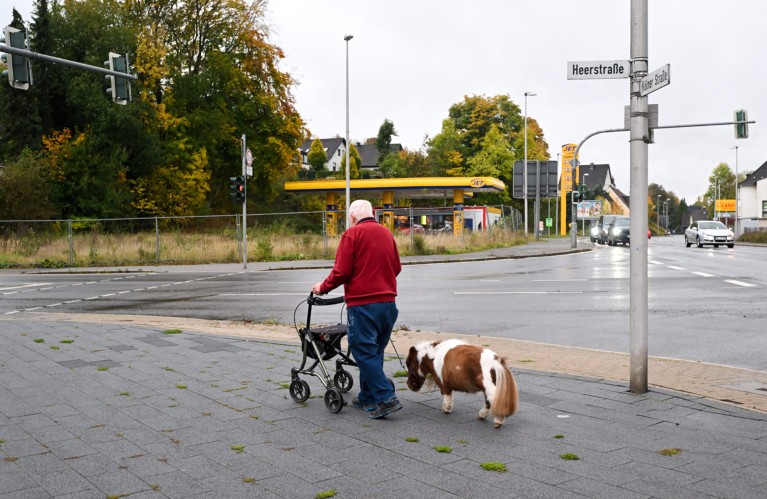Daily briefing: A guide to global climate change action
Article Meta
Article Date: 04 November 2025
Article URL: https://www.nature.com/articles/d41586-025-03627-y
Article Image: https://media.nature.com/lw767/magazine-assets/d41586-025-03627-y/d41586-025-03627-y_51622278.jpg
Summary
This Nature Briefing collects several short items around climate, health, biotechnology and curious science. The lead feature examines how global climate action might continue at COP30 even if the US federal delegation is absent, highlighting roles for China, Brazil, subnational actors and the private sector. Shorter pieces report that modest walking (as few as 3,000 steps) can slow early Alzheimer’s decline and that longer walks lower cardiovascular risk; start-ups proposing embryo gene editing are reviving ethical concerns; COVID-19 infections are likely being undercounted due to reduced surveillance; and a geometry story introduces the ‘noperthedron’, a shape that can’t pass through itself. Additional features cover Japan’s newly elected female prime minister and a long form on an escaped-primate episode in the US.
Key Points
- COP30 could still make progress without a US federal delegation — China, Brazil, cities, states and businesses may fill the gap.
- Under a Trump administration, US emissions are projected to be materially higher over the next decade than under Biden policies, increasing the global mitigation challenge.
- Just 3,000 steps per day is linked to roughly three years’ slower cognitive decline in people with early molecular signs of Alzheimer’s; benefits increase up to about 7,500 steps.
- Longer walks (rather than lots of very short walks) are associated with lower cardiovascular disease risk, especially for people with fewer daily steps.
- Commercial ventures aiming to edit human embryos are raising safety and ethical alarms; many scientists urge caution and more research before any clinical rollout.
- Reported COVID-19 case counts are likely underestimates because surveillance has waned since the pandemic peak, complicating vaccine planning.
- Science-and-culture items: a new geometric shape (the noperthedron) defies a classic 3D property; Japan’s female PM is a symbolic milestone but structural reforms are needed; and an extensive New Yorker piece looks at a major monkey escape in the US.
Context and Relevance
The climate piece is timely because COP30 opens in Belém amid geopolitical tensions: the absence of a national US delegation matters politically and for emissions trajectories, but it does not automatically halt international action. The briefing links that policy context to broader societal trends — health research that redefines minimal beneficial activity levels, renewed debate over germline gene editing as start-ups push into controversial territory, and public-health surveillance gaps that affect infectious-disease preparedness. Together these items sketch how policy, science and commercial forces interact as global challenges evolve.
Why should I read this?
Short answer: because it saves you time. If you want a quick, single-page catch-up on how COP30 might survive without the US, why a tiny amount of daily walking actually matters, and which controversial science stories are bubbling up — this does the job. It’s a tidy roundup with links to the full reads if you want to dive deeper.
Author style
Punchy, succinct and geared to busy readers — the briefing flags the big policy and science angles you need to know and points you to the full reporting when a story demands more attention.

